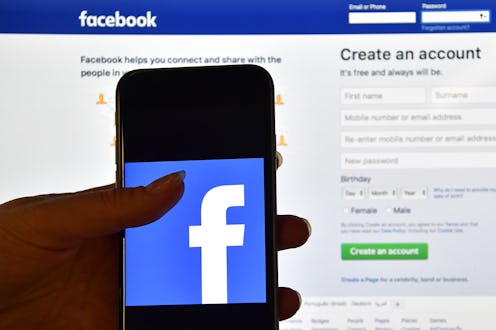
Nobody likes a social media oversharer, but the next time your super sensitive buddy from high school posts something dramatic on her Facebook timeline, you might want to think about cutting her a little slack. According to a new study, Facebook oversharers really just want to belong — and every time you roll your eyes at them or tell them to get over themselves, you’re really just invalidating them. Awwww.
The study, which was conducted by Gwendolyn Siedman of Albright College, looks at Facebook as the means through which people express their “true selves.” First coined in 2002, the “true self” is made up of the qualities in ourselves we’d like to be recognized for, but find ourselves unable to express in real life. Siedman’s new study found that people who felt they were more in touch with their “true selves” online were more likely to communicate with others on Facebook, disclose things about themselves on Facebook, and post emotional updates about the drama in their lives on Facebook. However, they’re also not totally aware they’re doing it: Says the study, “This expression of the true self… appears to operate at the unconscious level.” By posting sappy song lyrics or cryptic “Sometimes there’s just no pleasing anyone”-type status updates, they’re hoping to illicit care from their friends, thus inspiring a sense of belonging.
The fact that oversharing is indicative of a wish to belong is perhaps unsurprising — but what is of interest is how it piggybacks on a previous study. According to The Atlantic, the earlier study, which was also co-authored by Siedman, found that when people open themselves up and share personal stuff with their real life friends via email or IM, it can strengthen the relationship. This study, however, didn’t look at social networks; it only considered private means of online communication. According to the new study, the relationship strengthening effect doesn’t happen when the sharing occurs on Facebook — once it moves to a public forum, we hate it. So, even though the oversharing is intended to draw us closer to the person doing the posting, what it really does is push us away.
Why do we hate oversharers so much? I suspect is has something to do with what’s called "emotional contagion." Another recent study, this time by Cornell, the University of California San Francisco, and Facebook itself, showed that what’s in your newsfeed does affect how you feel. Said Jeff Hancock, co-director of Cornell’s Social Media Lab, “People who had positive content experimentally reduced on their Facebook news feed, for one week, used more negative words in their status updates. When news feed negativity was reduced, the opposite pattern occurred: Significantly more positive words were used in peoples’ status updates.” If we look at these findings in conjunction with the Albright College one, the picture that emerges looks kind of like this: Basically, we don’t like being around Debbie Downers on Facebook because their negativity makes us feel icky, too — and nobody likes to feel icky for no reason.
You tell 'em, Harry.
Of course, there’s an easy way out of all this complicated social media nonsense: Delete your Facebook account. YouTuber Matthias has some pretty strong feelings about why everyone should just go ahead and get off Facebook for good; true, his reasons are less about how your newsfeed makes you feel and more about the data and/or dirt Facebook collects on its users without most of us being aware of it… but hey, maybe it’s still worth considering.